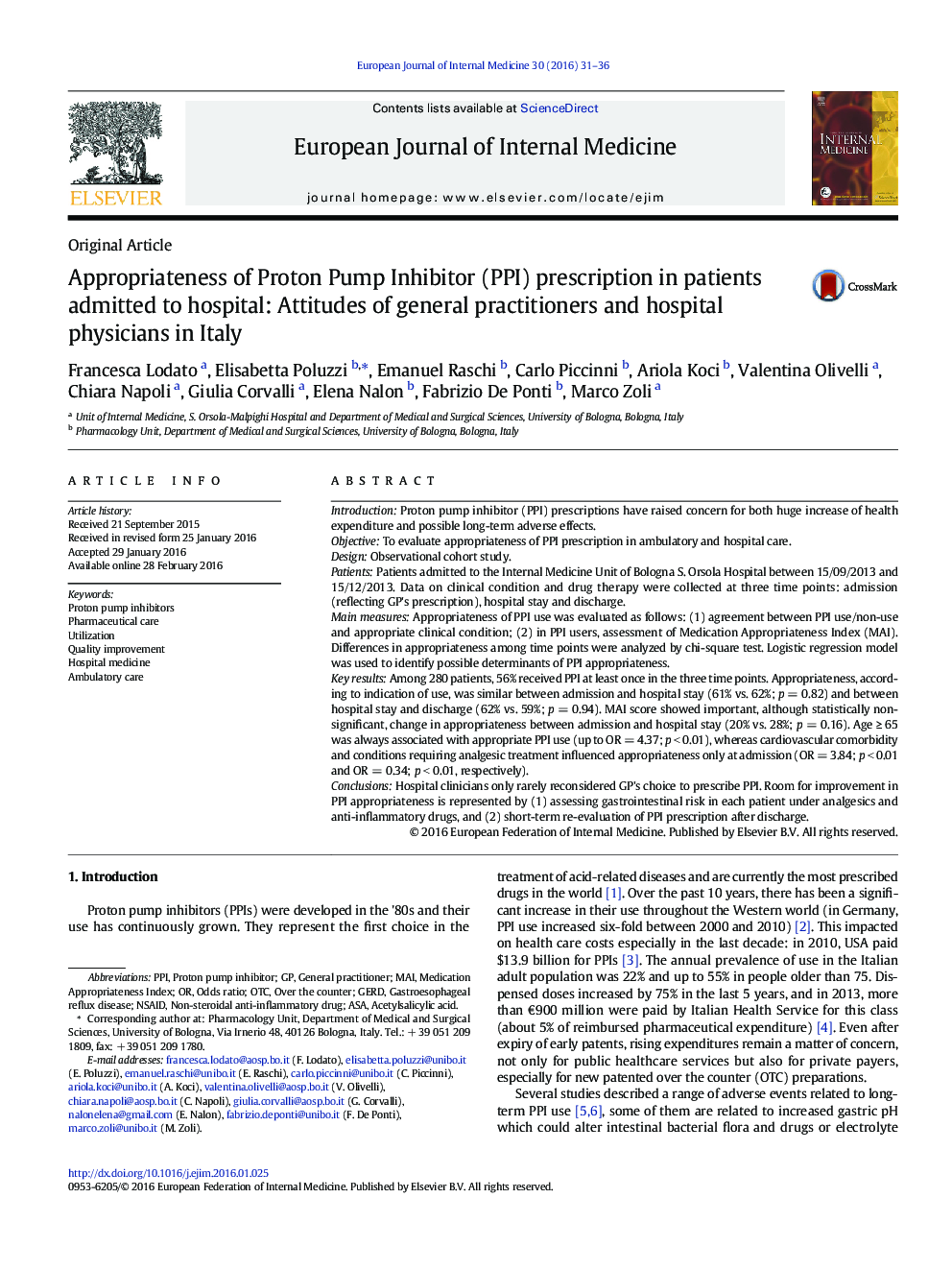| کد مقاله | کد نشریه | سال انتشار | مقاله انگلیسی | نسخه تمام متن |
|---|---|---|---|---|
| 3465900 | 1596536 | 2016 | 6 صفحه PDF | دانلود رایگان |

• More than 50/% of patients received PPIs before, during, or after hospitalization.
• Hospital clinicians changed PPI therapy prescribed by GPs only rarely.
• Appropriateness of PPI use/non-use was found in about 2/3 of cases.
• The most common inappropriate behavior was over- rather than under-prescription.
IntroductionProton pump inhibitor (PPI) prescriptions have raised concern for both huge increase of health expenditure and possible long-term adverse effects.ObjectiveTo evaluate appropriateness of PPI prescription in ambulatory and hospital care.DesignObservational cohort study.PatientsPatients admitted to the Internal Medicine Unit of Bologna S. Orsola Hospital between 15/09/2013 and 15/12/2013. Data on clinical condition and drug therapy were collected at three time points: admission (reflecting GP's prescription), hospital stay and discharge.Main measuresAppropriateness of PPI use was evaluated as follows: (1) agreement between PPI use/non-use and appropriate clinical condition; (2) in PPI users, assessment of Medication Appropriateness Index (MAI). Differences in appropriateness among time points were analyzed by chi-square test. Logistic regression model was used to identify possible determinants of PPI appropriateness.Key resultsAmong 280 patients, 56% received PPI at least once in the three time points. Appropriateness, according to indication of use, was similar between admission and hospital stay (61% vs. 62%; p = 0.82) and between hospital stay and discharge (62% vs. 59%; p = 0.94). MAI score showed important, although statistically non-significant, change in appropriateness between admission and hospital stay (20% vs. 28%; p = 0.16). Age ≥ 65 was always associated with appropriate PPI use (up to OR = 4.37; p < 0.01), whereas cardiovascular comorbidity and conditions requiring analgesic treatment influenced appropriateness only at admission (OR = 3.84; p < 0.01 and OR = 0.34; p < 0.01, respectively).ConclusionsHospital clinicians only rarely reconsidered GP's choice to prescribe PPI. Room for improvement in PPI appropriateness is represented by (1) assessing gastrointestinal risk in each patient under analgesics and anti-inflammatory drugs, and (2) short-term re-evaluation of PPI prescription after discharge.
Journal: European Journal of Internal Medicine - Volume 30, May 2016, Pages 31–36